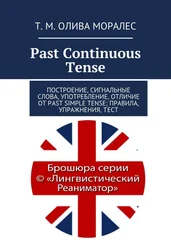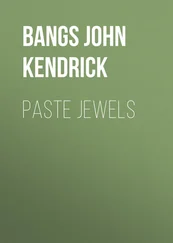John Matthews - Past Imperfect
Здесь есть возможность читать онлайн «John Matthews - Past Imperfect» весь текст электронной книги совершенно бесплатно (целиком полную версию без сокращений). В некоторых случаях можно слушать аудио, скачать через торрент в формате fb2 и присутствует краткое содержание. Жанр: Триллер, на английском языке. Описание произведения, (предисловие) а так же отзывы посетителей доступны на портале библиотеки ЛибКат.
- Название:Past Imperfect
- Автор:
- Жанр:
- Год:неизвестен
- ISBN:нет данных
- Рейтинг книги:4 / 5. Голосов: 1
-
Избранное:Добавить в избранное
- Отзывы:
-
Ваша оценка:
- 80
- 1
- 2
- 3
- 4
- 5
Past Imperfect: краткое содержание, описание и аннотация
Предлагаем к чтению аннотацию, описание, краткое содержание или предисловие (зависит от того, что написал сам автор книги «Past Imperfect»). Если вы не нашли необходимую информацию о книге — напишите в комментариях, мы постараемся отыскать её.
Past Imperfect — читать онлайн бесплатно полную книгу (весь текст) целиком
Ниже представлен текст книги, разбитый по страницам. Система сохранения места последней прочитанной страницы, позволяет с удобством читать онлайн бесплатно книгу «Past Imperfect», без необходимости каждый раз заново искать на чём Вы остановились. Поставьте закладку, и сможете в любой момент перейти на страницу, на которой закончили чтение.
Интервал:
Закладка:
Dominic agreed numbly along with Briant, but part of him remained uncertain. Hopefully the subject just wouldn't come up.
From what he heard about Machanaud's lawyer over the following weeks, that hope began to fade. Only twenty-six, Leonard Molet had been in full practice just over three years and divided his time between a private firm and state aid cases. Machanaud had shown alarm at their first meeting that this would be Molet's first murder trial, without fully appreciating how much worse his representation could have been: most state aid lawyers were inexperienced stagiaires still in pupilage, with invariably little or no courtroom experience. Over the weeks, Molet showed his paces and gained Machanaud's confidence, making Perrimond and Naugier at the same time sit up and take notice. Unlike the usual state aid fodder, he gained preliminary notes on time, saw his client regularly, and rebutted with sensible defence-angled questions for Naugier to pose at instruction . The case was going to be tightly contested.
While reading from his notes in testimony about the initial crime scene, Dominic felt Molet staring at him intently at one point, felt uncomfortable that Molet was perhaps measuring him for a later confrontation. Later, towards the end of Poullain's testimony, Naugier cut in, admitting his confusion at the various positions of Machanaud supposedly fishing, the lane and the wheat field, and where the boy was finally found. Naugier had already gone over the details twice without being fully satisfied, and suggested that everything be re-examined at the scene itself. Perrimond and Molet showed scant surprise. Examining Magistrates often visited crime scenes to question suspects and witnesses. The theory was that suspects found it harder to reconstruct an invented story at the scene itself. Discrepancies started to show.
Looking at his diary, Naugier saw that the next instruction in sixteen days was for witnesses who had sighted Machanaud on the day of the attack; at that hearing, he would notify both Perrimond and Molet of the date set for a reconstruction.
Facing Molet had unsettled Dominic. He felt somehow vulnerable, that his guilt about covering up showed. He thought seriously about going back on his agreement with Poullain. His mother's condition had worsened the week before and she'd gone in for more tests: if the prognosis was bad, she might only make it another few months. The instruction covering the police statements and later car references wouldn't be for at least six weeks. If he filed the complaint a few days before the hearing and only then warned Poullain of his upcoming change in testimony, it could take them almost two months to manipulate his transfer. Longer if… Dominic stopped himself sharply, shaking his head, could hardly believe that he was actually weighing the timing of his mother's death just so that he could come clean and salvage his own guilt.
In the days after giving in to Poullain, he was haunted by images of Machanaud. In one dream Machanaud was alone in the wheat field, calling out as Dominic turned his back and walked away. 'You're deserting me just like the others… Why?' But as he turned and looked back at Machanaud, only then did he notice one of Machanaud's hands covered with blood, could see where it had run down his arm, the bloodied rock discarded at his feet… and he awoke in a cold sweat, catching at his breath. Even in his dreams he was trying to assuage his concern, convince himself that Machanaud was guilty, he was doing the right thing. But it was little consolation knowing that he was merely joining Poullain and the rabble, and Machanaud's plea about desertion lingered stronger than any other image.
The session with witnesses went smoothly, mostly repetitions of their earlier police statements. Confronted by Naugier with the various witness statements, Machanaud admitted that he'd lied in his own statements only because he thought the police questioning was aimed at his poaching that day. Naugier didn't pursue the mention of cars or go deeper into Machanaud's police statements: one he would tackle at the reconstruction, the other at the session following. Naugier summarized the proceedings and looked at his diary. The next hearing was the reconstruction to take place at Brieulle's farm: present should be the suspect, defence and prosecution, and all relevant police and medics who attended at the original scene. Date set was in nineteen days time, 22nd November.
Chapeau tried the main Palais de Justice number in Limoges again. When he'd phoned two hours earlier, he was told that 'Monsieur Duclos was in a meeting, but should be free at twelve.' He'd left his name as Emile Vacheret, but no number. He would call back. Originally, he had planned to call closer to the final trial date, but during those months Duclos' memory could have started to fade.
The second time he was put straight through. 'Monsieur Vacharet, yes. One moment. Ne quittez pas.'
Then Duclos' voice in hushed tones. 'Emile… why on earth are you phoning me here are work, you know that…'
'Be quiet,' Chapeau cut in. 'I used Vacheret's name to get through.'
'Who is this? I don't understand.' Duclos spluttered. But it was a stock reaction; suddenly he did know who it was and understood fully. 'Why are you phoning me? How did you get this number? I'm quite sure Emile wouldn't be so stupid as to give it to you.'
Chapeau chuckled. 'No, you're right. But your wallet was a treasure chest of information.' Silence from the other end: only the background clatter of typewriters came through to Chapeau for a few seconds.
'It was you the other month,' Duclos hissed.
God, this was fun. Chapeau wasn't sure what was more joyous: the outrage in Duclos' voice or the sudden flashback of the incident itself. 'Ah, you guessed. And I wanted so much for it to stay a surprise.'
'Look, I just can't talk here.' Duclos voice was muted, edgy. 'I'll phone you straight back from outside. Give me a number.'
Chapeau looked down at the number on the dial and read it out. 'Five minutes, no more. Or I'll be phoning your office back again.' He hung up.
Duclos made a quick excuse to his secretary about seeing a client on the third floor, he wouldn't be longer than twenty minutes. He headed out along the long corridor, then skipped down instead of up. By the time he reached the main Palais de Justice steps, he was practically at a run.
Chapeau picked up the phone on the second ring. Less than three minutes: impressive. Duclos was even keener than he thought.
'Okay, what do you want?' Duclos' voice came breathlessly.
Obviously no patience left for preamble or politeness, thought Chapeau. What was the world coming to? 'Luckily for you, it looks like they're nailing some poor local poacher for what you did to that young boy.' Chapeau listened intently over the static on the line for Duclos' reaction.
A short intake of breath. 'I don't know what you're talking about.'
Chapeau had no time for fencing. 'Look, I know all about the boy in Taragnon. I saw the whole story in the papers. And I know that there's no friend. It was you — you attacked him, and that was why you wanted me to finish him off in the hospital. You were afraid he'd awaken and identify you.'
'You're wrong. It was for my friend. And I know nothing about Taragnon — my friend told me the boy was from Marseille.'
Chapeau read the bluff, could pick up on the tremor at the back of Duclos' voice. If there was any slight doubt remaining, now he was certain. There was no friend: Duclos had killed the boy. But he would have to push hard to get Duclos to admit it. 'Come on, Duclos. You've got a weakness for the young boys, you're a regular customer at Vacharet's. You want me to believe that this friend of yours has got exactly the same problem. And you drive straight through Taragnon on your way from the Vallon Estate to Aix.'
Читать дальшеИнтервал:
Закладка:
Похожие книги на «Past Imperfect»
Представляем Вашему вниманию похожие книги на «Past Imperfect» списком для выбора. Мы отобрали схожую по названию и смыслу литературу в надежде предоставить читателям больше вариантов отыскать новые, интересные, ещё непрочитанные произведения.
Обсуждение, отзывы о книге «Past Imperfect» и просто собственные мнения читателей. Оставьте ваши комментарии, напишите, что Вы думаете о произведении, его смысле или главных героях. Укажите что конкретно понравилось, а что нет, и почему Вы так считаете.












